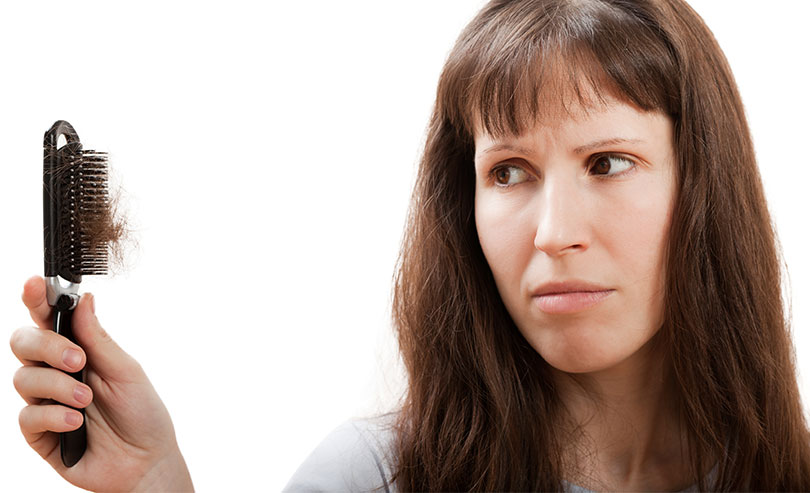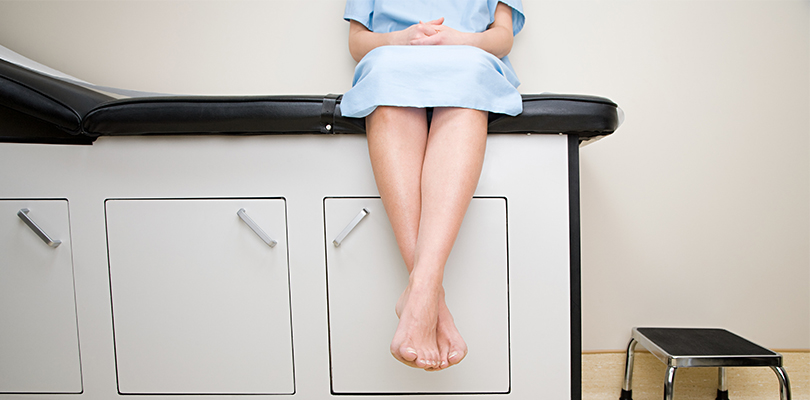
Photo Credit: diego_cervo / istockphoto.com
Misconceptions About Perimenopause
Menopause might be reserved for middle-age, but it’s natural to wonder whether or not you’ve already made some strides toward the transition. But how early can changes really begin? Is perimenopause something you need to think about now, and is there anything you should be doing about it?
Perimenopause is less definite than menopause and somewhat difficult to describe, which means it can be even more challenging to handle. In some cases, misinformation can lead to a lot of unnecessary discomfort, so it’s important to get on the right track, right away. Begin by breaking through these common misconceptions about perimenopause.
1. You Can't Get Pregnant During Perimenopause
When you begin perimenopause, you’ll notice your periods become more erratic — less frequent, more frequent, heavier, lighter, or just generally unpredictable. However, until you’ve officially stopped menstruating for good, you can still become pregnant.
Menopause is defined as 12 consecutive months without a period at all; if you’re still having a period now and then, your ovaries could still be releasing eggs, and you should continue to use contraception to prevent an unwanted pregnancy.

Photo Credit: IvonneW / istockphoto.com
2. When Perimenopause Symptoms Start, Menopause Is Right Around the Corner
Perimenopause is difficult to predict and difficult to define. It can come on quick and follow a regular pattern, with periods gradually decreasing over a few months until they disappear completely. But that’s not always the case. In fact, perimenopause can last anywhere from a few months to over a decade — up to 13 years, in some cases!
Perimenopause can also be difficult to measure if you don’t realize you’re in perimenopause, which is a fairly common situation. You may ignore mild symptoms until major changes begin to happen, and then, yes, it would seem like menopause hit you quite suddenly.

Photo Credit: marilook / istockphoto.com
3. Perimenopause Is Never as Uncomfortable as Menopause
Menopause gets a pretty bad reputation for discomfort, but the period leading up to menopause can bring even more suffering. The reason for the distress? Major fluctuations in the sex hormones, namely estrogen, progesterone, and testosterone, which send your body’s natural processes into chaos until menopause arrives (and these hormone levels falls permanently).
Some women find that sleep disruptions, mood swings, changes in libido, foggy thinking, and any number of other typical menopause symptoms hit hard well before menstruation ends. That can make life difficult through perimenopause, especially in you’re one of the unlucky ones who also experience heavier, more painful periods in these years.

Photo Credit: art-4-art / istockphoto.com
4. Perimenopause Symptoms Are the Result of a Decline in Estrogen
Although a drop in estrogen is the hallmark of menopause, the opposite is true during perimenopause. Progesterone is actually the first hormone in your body to decline, and since your estrogen level remains fairly constant, this leads to an imbalance between these two important hormones. It’s this imbalance that brings on many symptoms, and can even result in estrogen dominance.
Many women turn to hormone therapy to ease the transition to menopause, but that can be a big mistake during perimenopause. Adding more estrogen to your body in the form of birth control pills or another estrogen supplement can increase the imbalance – and leave you with a lot more discomfort.
For many women who are going through perimenopause and menopause, memory problems are quite common, but why? Can menopause really affect memory?

Photo Credit: monkeybusinessimages / istockphoto.com
5. Hot Flashes Are the First Sign That Menopause Is Approaching
Although hot flashes are almost synonymous with the popular conception of menopause, they certainly aren’t the only symptom — or the first. In fact, many women notice more subtle changes at the beginning of perimenopause, like fatigue, mood swings, or an increase in anxiety.
Hormone changes can affect different women differently, and you may notice more emotional symptoms than physical symptoms (or vice versa). In fact, there’s such a wide variety of perimenopause symptoms, that it can be difficult to attribute your discomforts to that phase of life; many women chalk up the changes to a stressful time in their lives, or maybe an illness.

Photo Credit: Cathy Yeulet / istockphoto.com
6. You'll Begin Perimenopause at the Same Age as Your Mother
Although your mother’s age at her transition to menopause can be a good indicator of when you’ll begin to notice the changes, it’s not a hard-and-fast rule. Your lifestyle choices, as well as your medical history, can have a big impact on when you enter perimenopause, too.
If you smoke, you may begin menopause earlier: studies show that smoking doubles the risk of early menopause for women between the ages of 44 and 55. One explanation is that the anti-estrogenic effects of cigarette smoke leads to earlier hormonal changes. On the other hand, obese women, or those who drink daily may begin perimenopause later than average.

Photo Credit: morrowlight / istockphoto.com
7. When You Began Puberty Will Determine When You Begin Perimenopause
It’s not uncommon to assume that you’ll hit perimenopause early if you got your period early, but in fact, the opposite is often the case. Many women who began menstruating earlier than usual will start menopause later than usual — that is, after their mid-50s.
But perimenopause mirrors puberty in other ways. Just like the initial transition into fertility, the fluctuating hormone levels of perimenopause feed PMS symptoms, moodiness, skin changes, and sore breasts.

Photo Credit: m-imagephotography / istockphoto.com
8. Perimenopause Leads to Depression
There’s really no way to sugar-coat it: perimenopause involves emotional strain. A changing body, unpredictable moods, a shifting self-image, and worries about the discomforts that lie ahead are fodder for anxiety. However, that path doesn’t have to end in depression.
Up to 20% of women experience mood swings in perimenopause, and some experts suspect there’s a higher incidence of depression in these years, but biological changes can’t take all the blame. It may be that less activity, slight weight gain that can come with changing hormones, and poor sleep quality are really what leads to mood imbalance. Luckily, there are plenty of ways to tip the scales in your favor, from regular exercise to social support.
The best step to a better transition is breaking through the myths and stigma surrounding menopause. It’s important to monitor your own body and mind, rather than get hung up on what you “should” expect and when. Look inside yourself and reach out to the strong women around you to find the strength to overcome the challenges. After all, you’ve been through major hormonal shifts before, and you can certainly do it again — with grace, positivity, and energy.
Read more about anxiety during perimenopause over at NewLifeOutlook.
Menopause hair loss can be upsetting, but if you notice that your hair isn’t as thick as it used to be, you are not alone.








